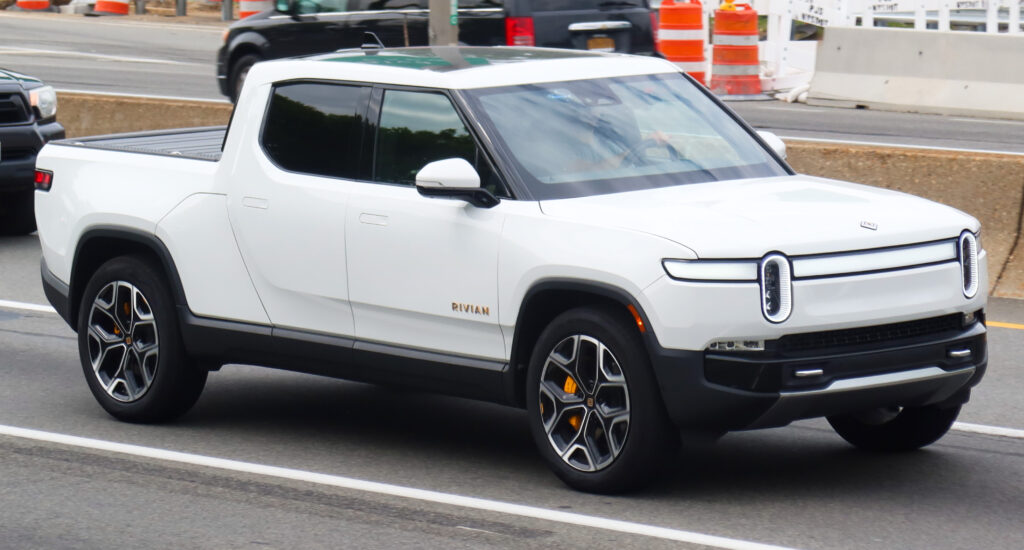
1. **What are Kei Trucks?**: Kei trucks, known as ‘keitora’, are compact, versatile vehicles from Japan that adhere to strict regulations concerning size and engine capacity. Typically measuring no more than 11 feet, these mini trucks offer an unexpectedly useful payload, making them a practical choice for a wide range of tasks. Their smaller frames, while seemingly insignificant, allow for impressive maneuverability in both bustling urban environments and serene rural landscapes.

2. **The Rising Popularity**: Over the past few years, Kei trucks have experienced a remarkable surge in interest among American consumers, reflecting a trend toward smaller, more economical vehicle options. Sales have tripled recently, with approximately 7,500 units imported last year alone, showcasing a growing preference for these compact trucks amidst rising costs for more traditional, larger pickups.

3. **Affordability Factor**: One of the most appealing features of kei trucks is their affordability, with many available for around $5,000, providing a stark contrast to full-size pickups that typically start at about $30,000. This budget-friendly price point makes kei trucks an attractive option for a wider array of buyers who seek functionality without compromising their financial stability.

4. **Versatile Uses**: Kei trucks are not just cute; they serve a multitude of practical purposes. Their design makes them ideal for farmers, landscapers, and those in construction, as their compact size allows them to navigate tight spaces while still offering a substantial carrying capacity. They are also popular among small business owners for their functionality and ease of use.

5. **Community and Culture**: The kei truck phenomenon in America is fueled by a vibrant online community. Social media platforms, such as Instagram and Reddit, showcase these vehicles, with many enthusiasts sharing tips for maintenance and customization. This sense of camaraderie and shared interest enhances the overall appeal of kei trucks, turning ownership into a lifestyle.

4. **Challenges of Importing**: Despite their increasing popularity, prospective buyers of kei trucks may encounter several challenges during the importation process. Federal regulations require that these vehicles must be at least 25 years old to comply with safety and pollution standards, which can complicate matters for those eager to own a kei truck.
5. **State Regulations**: The legal status of kei trucks varies significantly across the United States, with only 19 states permitting them on public roads. This patchwork of regulations requires prospective owners to conduct thorough research on local laws to determine whether they can legally register and operate a kei truck in their state.

8. **Safety Considerations**: While kei trucks are beloved for their size and utility, safety concerns remain. Many models lack standard safety features such as airbags and seatbelts, which has led to some states deeming them unsuitable for on-road use. Nevertheless, their slower speed limits and compact design can mitigate some risks associated with larger vehicles.

6. **Cuteness Factor**: Beyond their practical uses, kei trucks boast a distinctive charm that captivates many drivers, thanks to their playful appearance and quirky designs. Their toy-like aesthetics have made them especially popular among younger drivers and those looking for a unique alternative to conventional vehicles, transforming them into conversation starters and a reflection of the owner’s personality.

7. **Environmental Considerations**: As awareness of environmental concerns grows, kei trucks emerge as a more sustainable alternative to larger pickups. Their smaller engines generally provide better fuel efficiency, often achieving between 30 to 50 miles per gallon, making them an appealing choice for eco-conscious individuals who are mindful of their carbon footprint.

11. **Legal Framework for Kei Trucks**: Understanding the legal landscape surrounding kei trucks in the U.S. is crucial for potential buyers. Federal regulations prohibit the importation of foreign vehicles unless they conform to strict safety and pollution standards. This means that only kei trucks that are 25 years old or older can be imported and legally registered. This age requirement classifies them as classics, allowing them to bypass some of the more stringent modern regulations.

12. **State-Specific Regulations**: The permissibility of kei trucks varies significantly from state to state. As of now, approximately 19 states allow these unique vehicles to operate on public roads, while others restrict their use to private lands. Potential owners must familiarize themselves with their own state’s regulations, as some states have established specific rules regarding registration and operation.

8. **Safety Standards and Compliance**: One of the hurdles prospective kei truck owners face is ensuring compliance with safety standards, as many kei trucks may lack essential features like airbags and seatbelts. This deficiency has led some states to classify them as unsuitable for highway use, but for those willing to invest in modifications, it is possible to make a kei truck compliant with state safety regulations for legal road use.

9. **Insurance Considerations**: Insuring a kei truck can be somewhat challenging, as not all insurance providers cover these unique vehicles. Prospective buyers should be prepared to shop around for the best coverage options, ensuring they have necessary documentation like a release letter from the EPA and a customs letter to streamline the insurance process. Generally, insurance rates for kei trucks tend to be lower than those for traditional vehicles due to their compact size and fuel efficiency.

10. **Practical Uses in Various Industries**: Kei trucks have carved out a niche in various industries across the U.S., proving invaluable in fields such as construction and maintenance, where their compact size allows access to tight spaces that larger vehicles can’t navigate. Additionally, they have gained popularity among farmers and small business owners who appreciate their utility, affordability, and ability to get the job done effectively.
Related posts:
Which US States Can You Drive A Kei Truck?
Americans are buying more Kei trucks from Japan. Is it a sign of a growing ‘tiny truck’ movement?
The Japanese Kei Trucks Are Taking America by Storm





